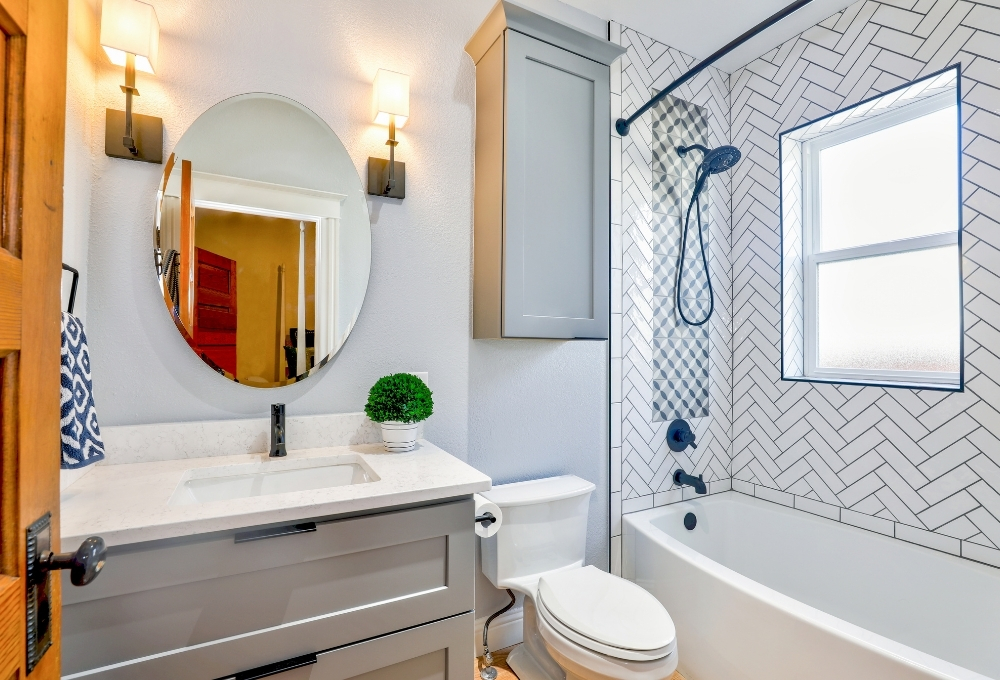What’s the Lifespan of My Home’s Plumbing?

Your home’s plumbing works hard every day and while some of your products and fixtures may need to be replaced sooner than others, it’s no pipe dream to have your home’s pipes and fixtures perform well for decades. Caring for your home’s plumbing can keep yours running past the average life span. Here’s an idea of how long your home’s plumbing should last.
Pipes: Know What You Have
Knowing the type of plumbing in your home makes a difference in knowing how long you can expect it to last without starting to be compromised. Your home inspection report or your new home’s documents and warranties will give you a good idea about the type of plumbing system you have and when it was installed. You can also pay for a thorough inspection of your plumbing system to get a true status of its viability.
On average supply pipes that are brass, iron or steel can have a viable lifespan of 50-70 years; copper is 70-80 or more years. PVC piping has a shorter lifespan of fewer than 50 years.
Some homes in the Mid-Atlantic build in the 1970s-90s used a briefly popular product called polybutylene piping which was thought to be easier to plumb because it was made from pliable plastic. The product became susceptible to breaking and is often removed from a home as a preventative measure. An inspection can determine if your polybutylene piping is failing.
Hot Water Heaters
Your water heater cranks every day to make sure you get that hot shower in the morning. While the number of people in the home makes a difference in your hot water heater’s workday, here’s a look at how long you can expect before replacing your hot water heater.
- Tankless hot water heater: 20 years
- Traditional hot water heater: 12 years
- Heat pump water heaters: 10 years
Toilets
A malfunctioning toilet can be a major home meltdown. Toilets can last nearly 50 years but that doesn’t mean all its internal components. A toilet operation is fairly simple, but it does contain about a dozen moving parts. It isn’t unusual to have to replace some of the components during the lifespan of the toilet but cracked bowls or issues with successful flushing may mean it’s time for a new toilet.
If your toilet is manufactured before 1994, it might be a good idea to proactively swap it out. Older toilets use more gallons of water than necessary causing your water bill to inflate. A new toilet may offset the cost of that high water bill.
Faucets
Kitchen faucets have evolved with smart technology and touchless technology, but we can all agree a functioning faucet is a major necessity in the kitchen. Over time faucets can create a build-up of mineral deposits from the hard water we use in our homes. A simple cartridge repair can do the trick. But, if you find rust coming from your faucet or consistent leaking, it might be time for a new faucet. A faucet’s useful lifespan can vary depending on manufacturer, but the average is about 12 years.
Sump Pumps
One of your home’s plumbing MVPs is the sump pump. Designed to keep your basement dry in the event of heavy rains, your sump pump’s average lifespan is about 10 years. If you suspect yours is approaching that age, it is best to get it inspected. A non-operating sump pump can put you in a lot of hot water, fast.
Well Pumps
If your home is on a well, your well pump is the most important component to keep your water running. A well pump can last 8-15 years, depending on your water usage, number of people living in the house, sediment levels, and your area water levels.
Putting off plumbing repairs or replacement is never a good idea. Failed plumbing can lead to major home damage meaning that small replacement job just turned into a major insurance nightmare. At Len The Plumber, our expertise helps you know whether your plumbing issue is one that can be repaired or if replacement is the best solution.
From Len The Plumber Heating & Air
 Coupons
Coupons 

